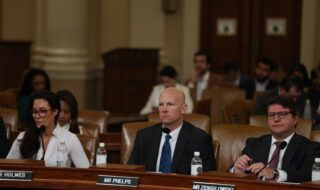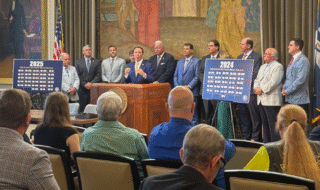May 20, 2025
Report shows growing health insurance crisis for small business owners and workers
NFIB, the nation’s leading small business advocacy organization, has released a new health care policy paper that shows how the cost of employer-provided health insurance is becoming too expensive for millions of small businesses and their employees.
“Small business owners have been struggling with rising health insurance premiums for years,” NFIB State Director Gregg Thompson said. “Now, the legislature is considering bills that would make it even harder for them to offer coverage while doing little to help the vast majority of workers.”
Each of the bills being pushed this session benefits a narrow special interest at the expense of everyone else:
- HB 152 addresses access to transcranial magnetic stimulation
- HB297 is an imaging mandate written for the radiologist lobby.
- HB489 requires a minimum payment of 400% of Medicare rates for an ambulance ride.
- HB567 mandates costly lab tests that benefit large lab companies.
- HB906 requires unlimited payments for medical devices, no matter the cost.
“These mandates don’t apply to self-insured companies, which are usually big corporations,” Thompson said. “That means only small businesses will be stuck footing the bill.”
Thompson said a new NFIB report, Addressing the Health Insurance Affordability Crisis for Small Businesses, underscores the need for North Carolina lawmakers to oppose new health insurance mandates.
“The cost of health insurance has been one of the biggest concerns for small businesses for nearly 40 years,” he said. “The mandates may be well-intentioned, but they would only raise the cost of insurance for small businesses and could lead to fewer workers being covered.”
Thompson cited a key finding from the national report that only 30 percent of small businesses offer health benefits to their employees, down from nearly 50 percent in 2000. “Our small business members want to provide health benefits to their workers, but these mandates would only drive up the cost of coverage and could well end up hurting the workers supporters say they’re trying to help.”
Other key findings of the national report include:
- Small businesses pay nearly twice as much for health insurance as large businesses. For example, companies making less than $600,000 a year spend about 12% of payroll on health benefits, while companies making over $2.4 million spend about 7%.
- Enrollment in the small-group insurance market has dropped 44%, from 15 million people in 2014 to just 8.5 million in 2023.
- 98% of small businesses are worried about whether they can afford to keep offering health insurance over the next five years.
“We’re committed to working with lawmakers this session on solutions that help Main Street businesses and their employees,” Thompson said.
NFIB is a member-driven organization advocating on behalf of small and independent businesses nationwide.
Related Articles














